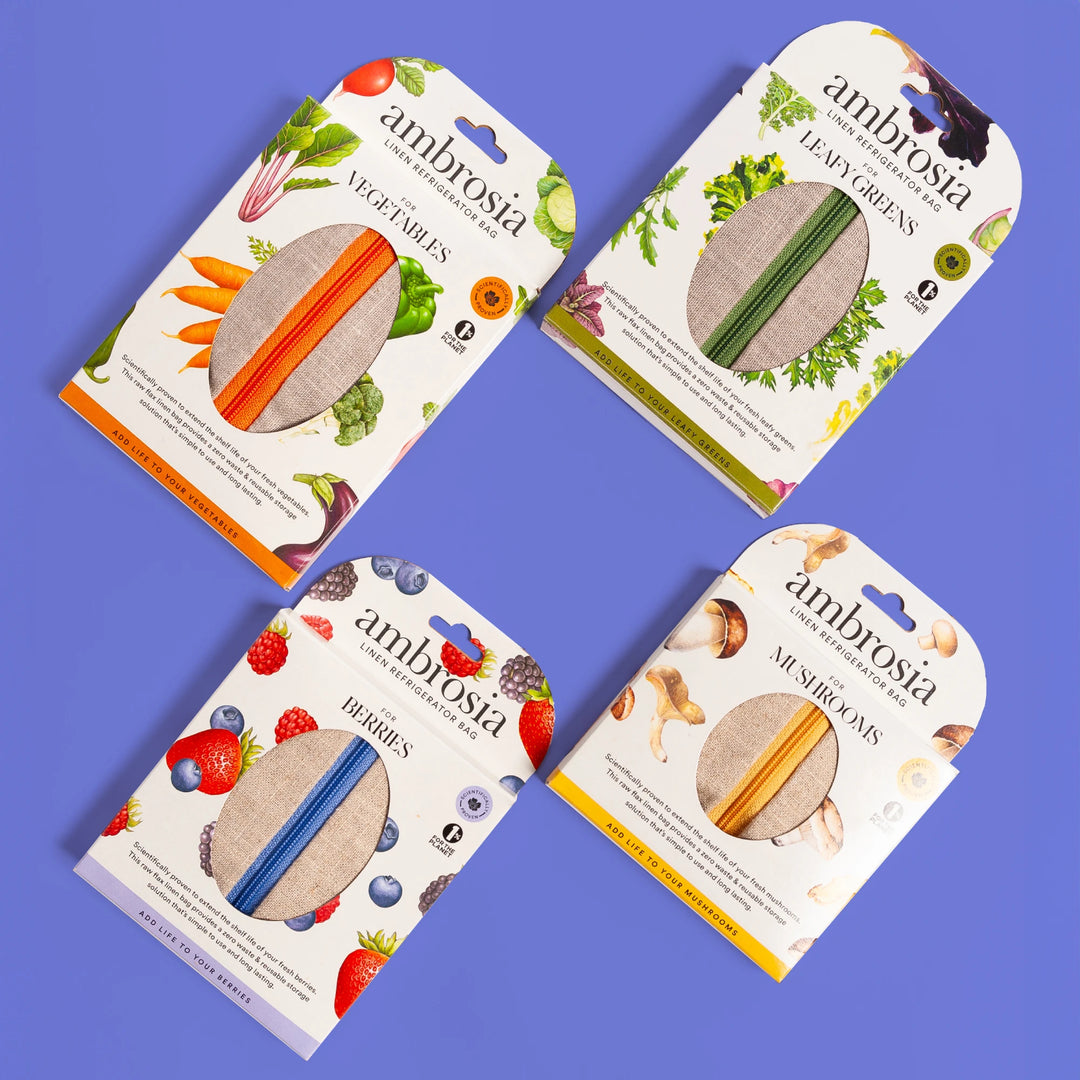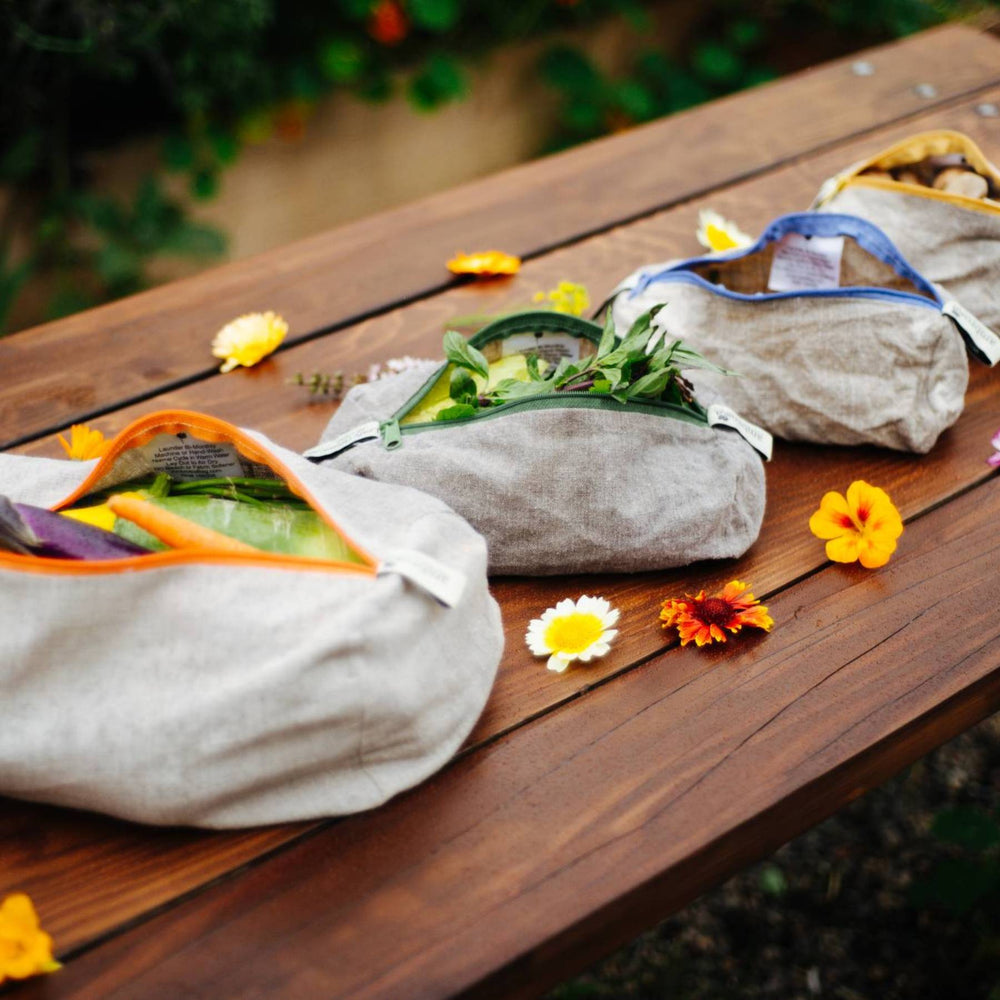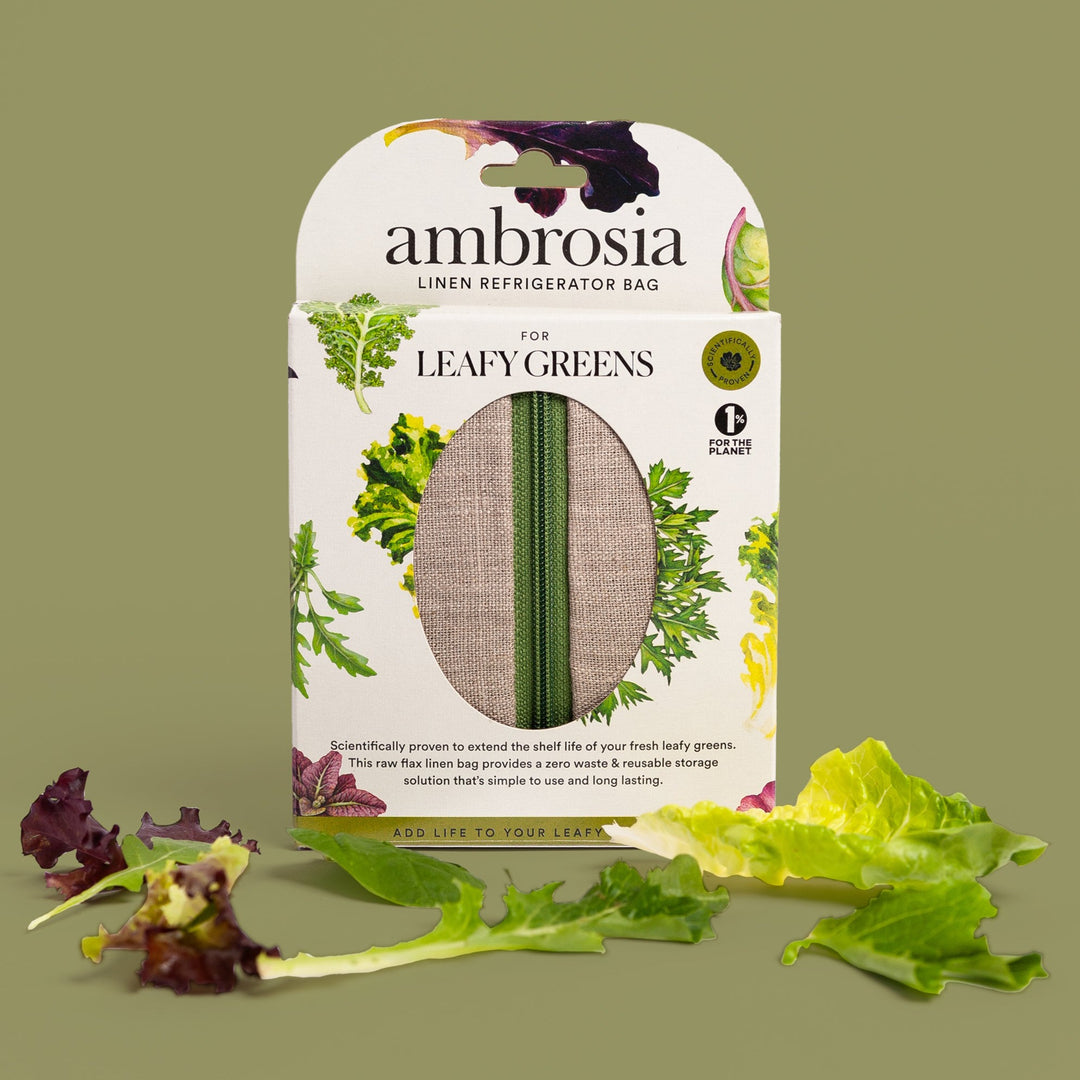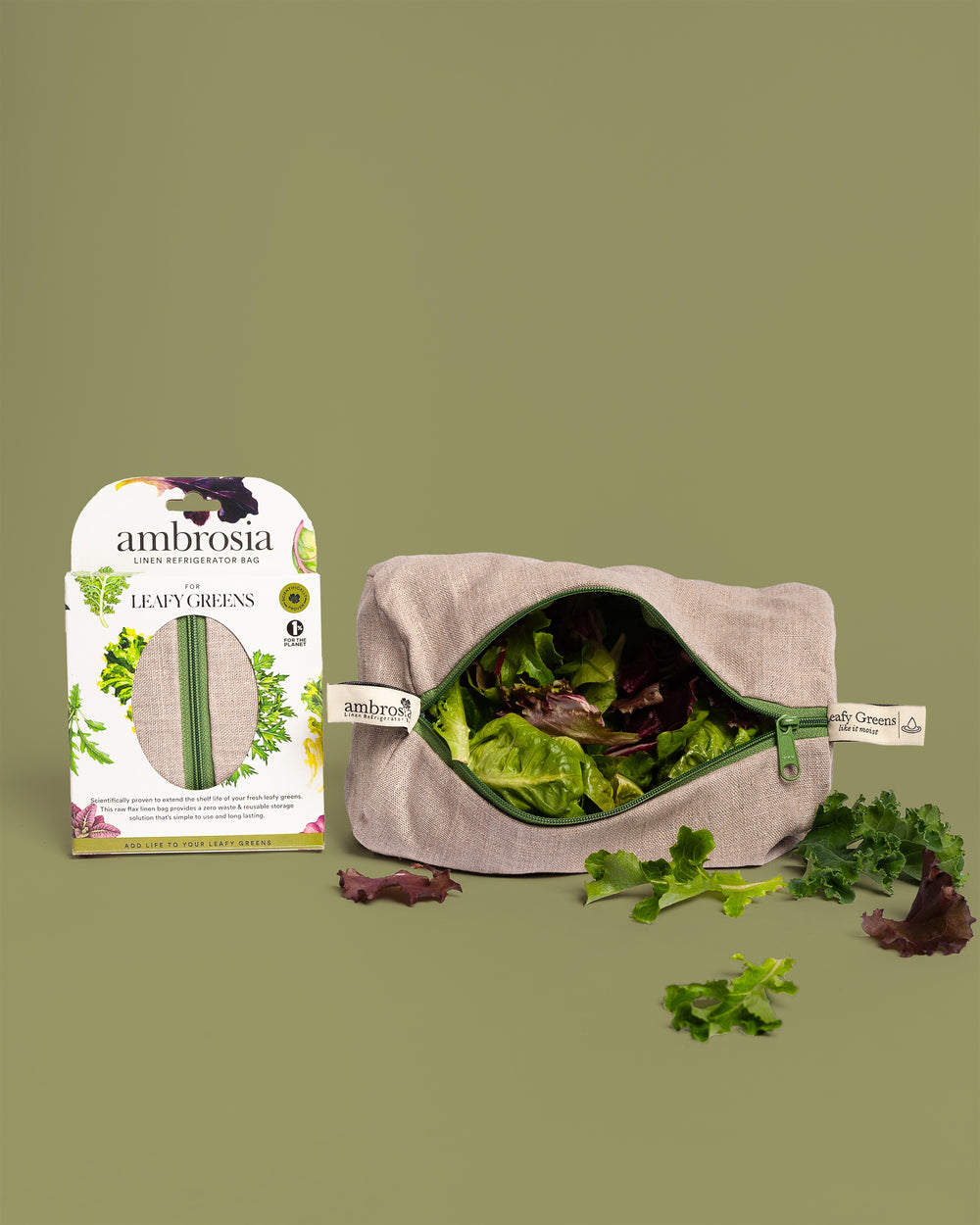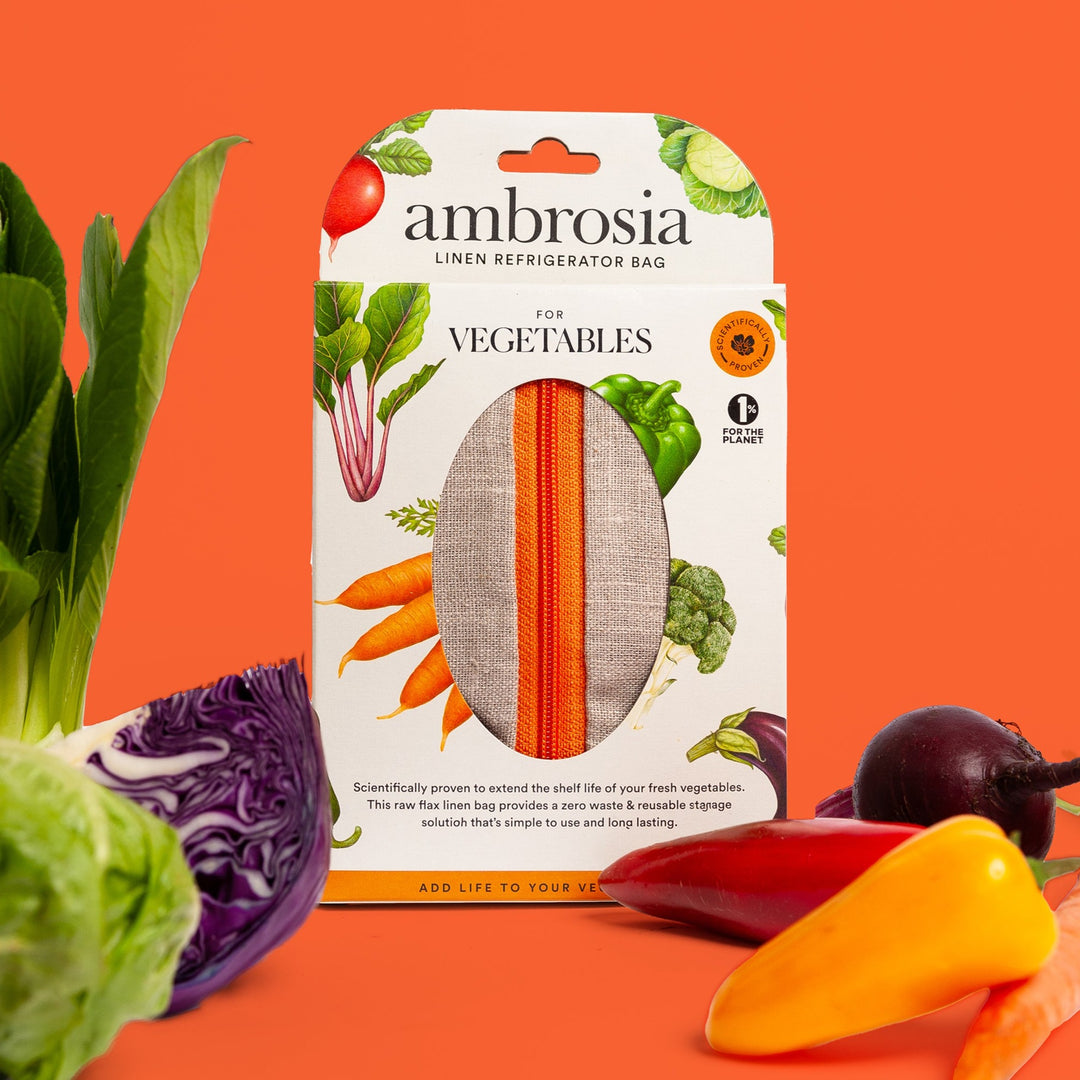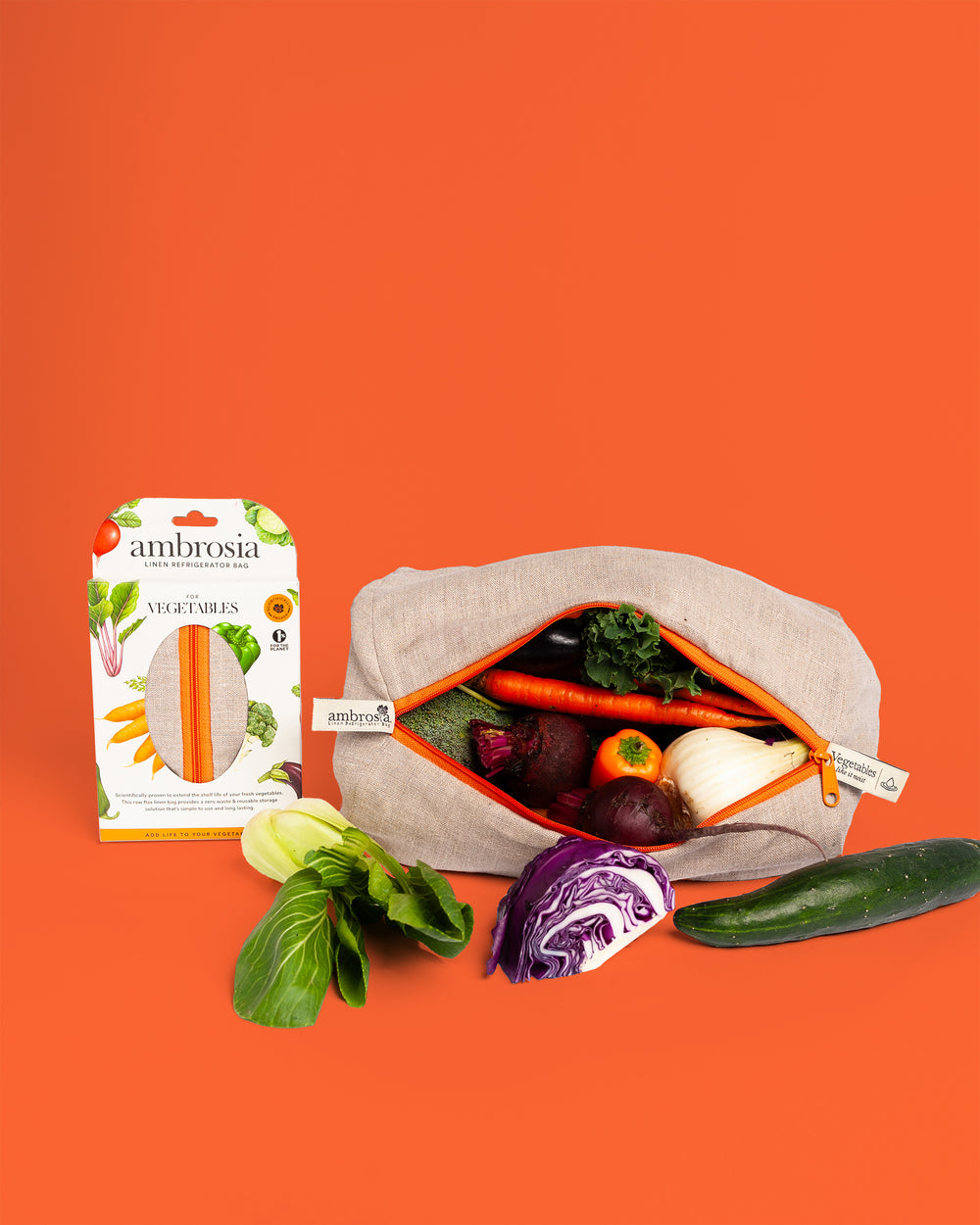The Real Weight of Plastic

Let's talk about the weight of plastic waste:
In 2015, about 730,000 tons of plastic bags, sacks, and wraps were generated in the US. What’s worse? More than 87% of those items are never recycled, winding up in landfills and the ocean.
We now know that microplastics (or their even smaller counterparts, nano plastics) are found everywhere in our environment including withint our food chain (and even more horrifyingly), in newborn babies and studies show that they are damaging to human health in ways that are too innumerable to mention in a simple blog. But here’s a little scoop on why we need to stay educated on plastic waste, how we can reduce our personal plastic use to support our health and the environment, and where Ambrosia Produce Bags fit into the mix.
WHY YOU SHOULDN’T STORE YOUR FOOD IN PLASTIC
According to Harvard Health, “Studies have found that certain chemicals can leach out of the plastic and into the food and beverages we eat. Some of these chemicals have been linked to health problems such as metabolic disorders (including obesity) and reduced fertility.”
From 2007 to 2018, there were as many as 108 cases of phthalate-contamination in plastic food containers. Phthalates are known endocrine disrupters, and when consumed by humans have been linked to everything from digestive issues to altered DNA and infertility.
Okay, so say you buy the fancy newer “BPA-free” microwave-safe containers in an effort to make an environmentally conscious upgrade. Unfortunately, you eventually need to dispose of damaged and broken plastic containers, and we all know what it’s like when one of these loses a lid and becomes utterly useless. Although many maintain that they are recyclable, keep in mind that most municipalities won’t accept recycled containers that aren’t clean, so make sure your wash and rinse them thoroughly. But the best alternative to plastic in general… is no plastic at all.
WHAT IS THE BEST SOLUTION TO AVOID PLASTICS?
- Skip those single-use plastic bags in the grocery store. Those flimsy produce bags have a 20-minute life span and end up straight in the trash. Place your fresh produce right in your reusable grocery bag until you get to the register. If you wash & rinse your fruits and veggies before consumption (which we definitely recommend) there’s no need to have them in a separate bag from other grocery items while you shop.
- Once you are home, store fresh produce in your reusable Ambrosia Produce Bags, and prepared foods in glass containers as needed.
- For to-go meals, opt for stainless steel containers. (Food-grade stainless steel is durable, rust-free, and heat resistant, making it a safe choice for food storage. It’s also reusable and recyclable, and lighter in weight than glass.)
- Other more natural options that are more sustainable than plastic can include bamboo, ceramics, or biodegradable materials from rice husk and more!
Ditching plastic can be one of the most powerful moves you can make this year for yourself and the planet…and starting in your kitchen can be a great way to start!
Ambrosia Reuseable Produce Bags are made from 100% European flax linen, are sustainably produced, and last for years. Sustainability is always in style, and reducing your plastic waste has never been easier.




